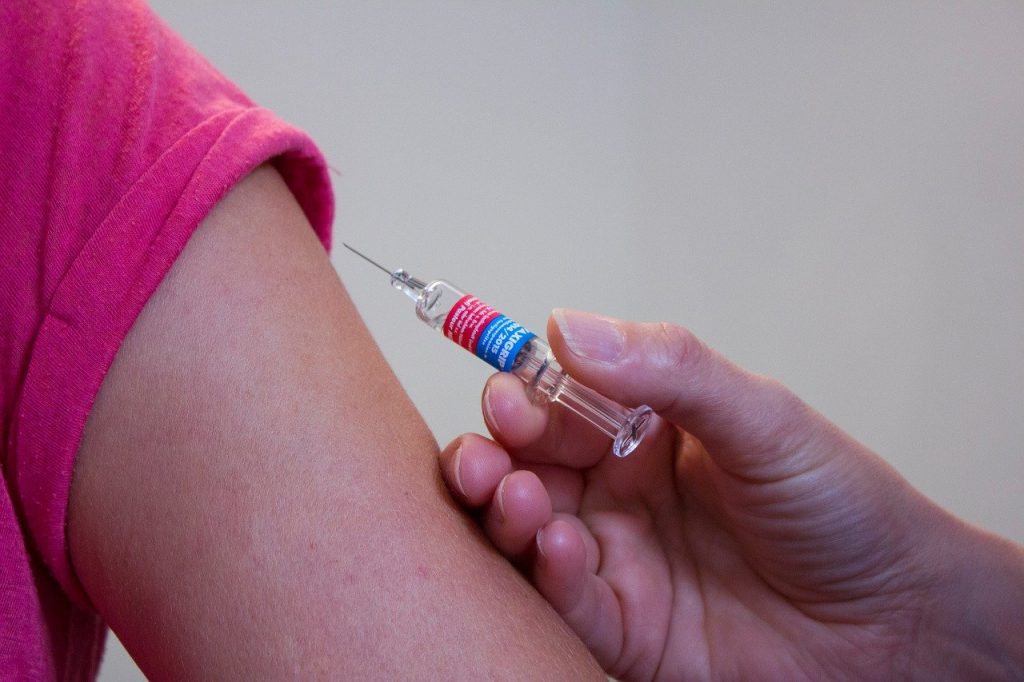
An injection triggers our body immune system without making us sick. Numerous hazardous transmittable illness can be avoided in this straightforward as well as effective means.
From birth, we are frequently exposed to several viruses, bacteria and various other microorganisms. The majority of are not unsafe, numerous are beneficial yet some can cause disease.
The body’s immune system assists safeguard us against infections. When we are revealed to infection, the immune system causes a collection of responses to neutralise the germs as well as limit their unsafe effects. Direct exposure to an infectious illness frequently provides lifelong defense (immunity) so we do not acquire the same condition once again. Our body immune system “bears in mind” the microbe.
Simple As Well As Reliable Defense
We usually establish lifelong resistance when we have had a condition. Nonetheless, some conditions may cause severe complications and also sometimes fatality. The objective of vaccination is to acquire this immunity with no of the risks of having the disease.
When we vaccinate, we turn on the body immune system’s “memory.” During inoculation, a weakened microbe, a piece, or something that resembles it, is contributed to the body. The body immune system is after that activated without us becoming ill. Some harmful transmittable illness can be avoided in a straightforward and also effective way. For some illness, inoculation gives long-lasting defense, while for others the effect is lessened after a few years and booster doses are required.
Infants Tolerate Vaccines Well
In the womb, our immune system is currently prepared to take on different microbes that we experience after birth. Since vaccinations just utilize a little part of a youngster’s immune ability, the immune system is strained a lot less than with usual infections, such as a chilly. Infants consequently endure inoculation well, consisting of obtaining several vaccinations at the same time.
Herd Immunity
When most of the populace has actually been vaccinated against an illness, there will certainly be couple of people delegated whom the infection can spread out. This safeguards minority who have actually not been immunized.
With the help of inoculation, it is possible to totally get rid of some illness worldwide. So far, this has actually been accomplished for smallpox.
The recommended inoculation programme for children and also teens includes vaccines against twelve various diseases: rotavirus, diphtheria, tetanus, whooping coughing, poliomyelitis, infection with Haemophilus flu type b (Hib), hepatitis B, pneumococcal illness, measles, mumps, rubella and human papilloma virus (HPV), which can cause cervical cancer and also various other cancers cause by HPV. Some children are likewise offered vaccination versus tuberculosis. All these illness can be serious or lead to major complications.
Inoculation typically starts when a kid is 6 weeks old. Because several of the diseases vaccinated versus affect the youngest youngsters the hardest, hold-ups must be stayed clear of. Booster doses are given when a youngster reaches school-age child.
How Are Vaccinations Given?
The rotavirus injection is offered by mouth (drinkable injection). The other vaccines are administered by injection. Mercury is not utilized as a preservative in any one of the vaccines in the Childhood years Immunisation Programme.
Combination Injections
Combination vaccines have been used since the Norwegian Childhood Immunisation Programme began in 1952. These include vaccines against a number of diseases in the same syringe, which implies less injections for the kid. The combination injections cause less negative effects than when the injections are given separately.
What Happens In The Body When We Immunize?
Throughout inoculation, the body is revealed to either a weakened microorganism (microorganisms or infection), fragments of a germ, or something that resembles the germ. When the active materials in the vaccination satisfy the body’s immune system, immune cells and antibodies are generated that will identify the “real” microorganism. When the immunized person experiences this germ, the immune system will provide a quicker and better immune feedback that can stop disease. This is synthetically acquired energetic resistance.
A good vaccination will provide ample and also long term security versus the disease. The number of dosages required varies from vaccine to injection. For some vaccines, there is a need for a booster dose later in life to keep security. These consist of vaccinations versus tetanus, diphtheria, polio as well as pertussis. Booster doses may likewise be required for traveling vaccines.
What is Resistance?
When the body is contaminated with a microorganism (infection, microorganism, parasite or fungus), it boosts the manufacturing of essential immune cells. After recovery from an illness, some of the immune cells will “remember” these microorganisms. This is called immunological memory. Next time the body is revealed to the exact same sort of microorganism, the immune system will certainly identify it. The body’s defence versus the illness becomes quicker as well as much more powerful and can protect against the person from coming to be ill. This is naturally obtained energetic immunity.